The Former Model Fighting to Make Copenhagen Fashion Week Runways More Inclusive
In an industry that's still stubbornly exclusive, Mona Ali has built her agency on welcoming all forms of beauty.
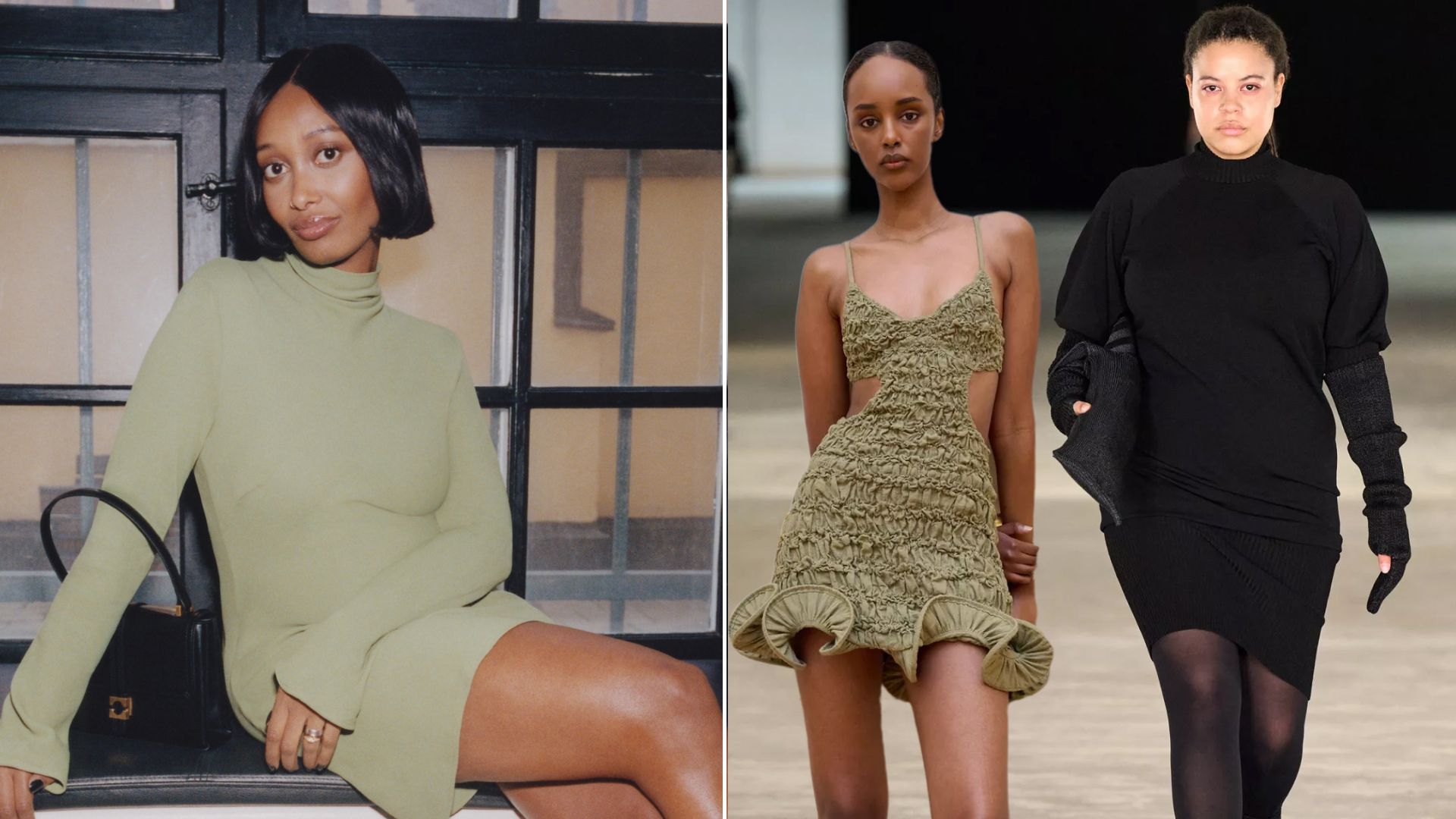
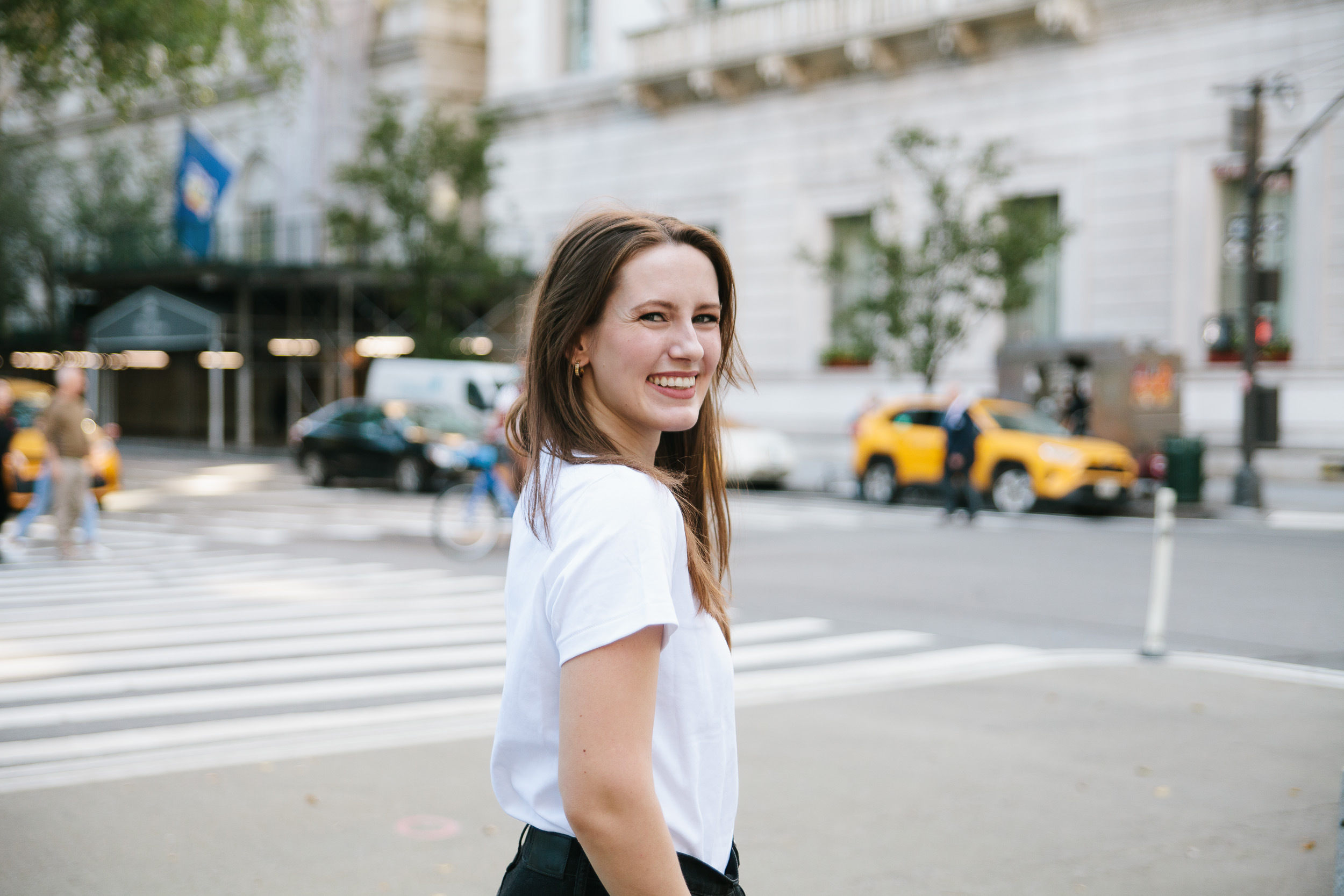
On the international fashion circuit, Copenhagen Fashion Week's sustainability requirements aren't the only feature that make it an outlier. Attend a few shows, and you'll quickly observe that the casts of runway models aren't all thin, white, and under the age of 30. They're a diverse representation of the women who wear the brands in street style and average, everyday life. The aesthetics of a brand can be uniform—minimal and neutral on one catwalk, punchy and colorblocked on another—but the women wearing them never are.
This attention to inclusive runway casting is partially a standard Copenhagen Fashion Week organizers have set, and partially the effort of women working behind the scenes. One of those women is Mona Ali, the founder of Scandinavia's first Black-owned modeling agency, Fiiri.
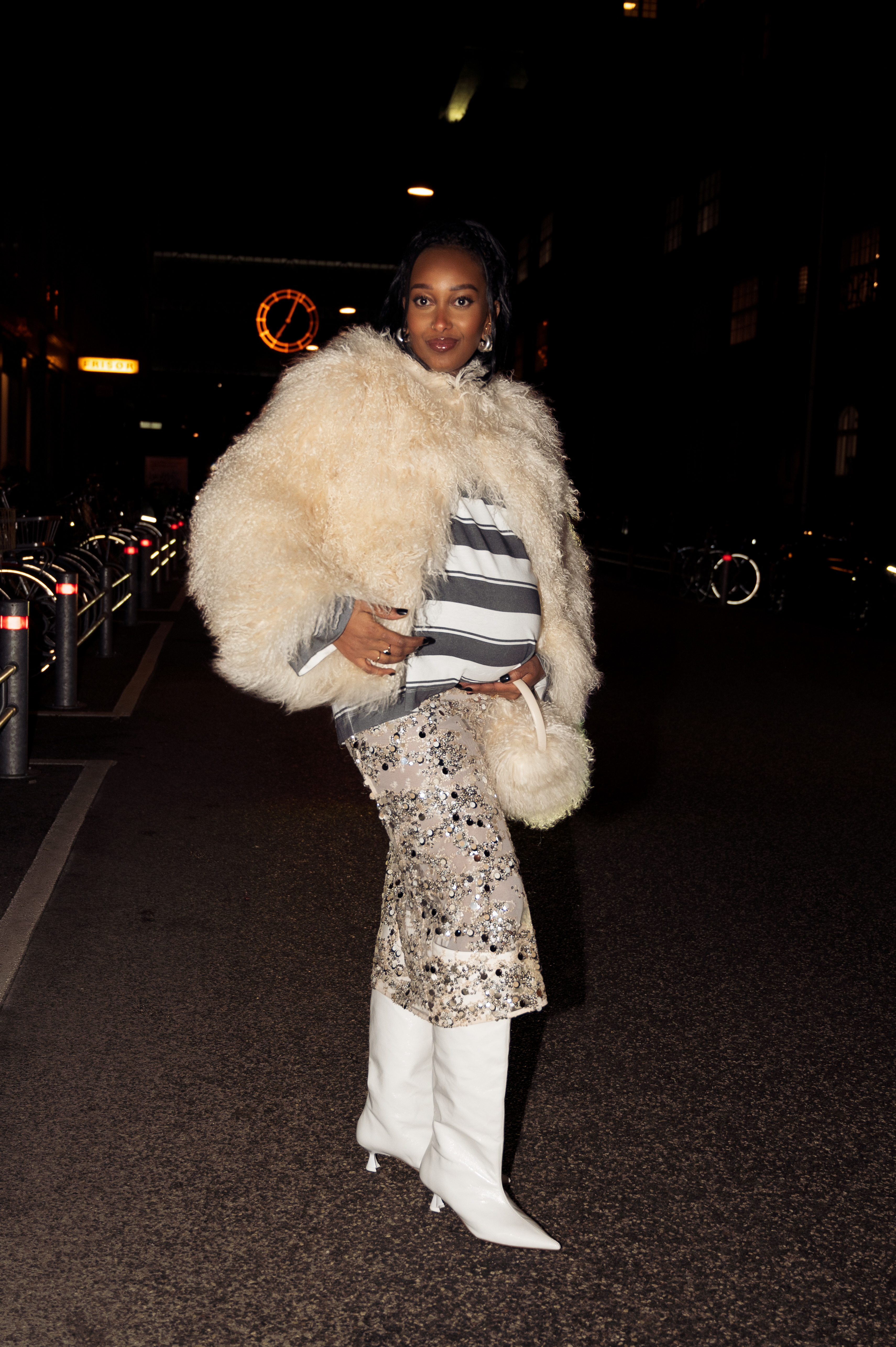
Mona Ali attended Copenhagen Fashion Week this season ready to cheer on her models.
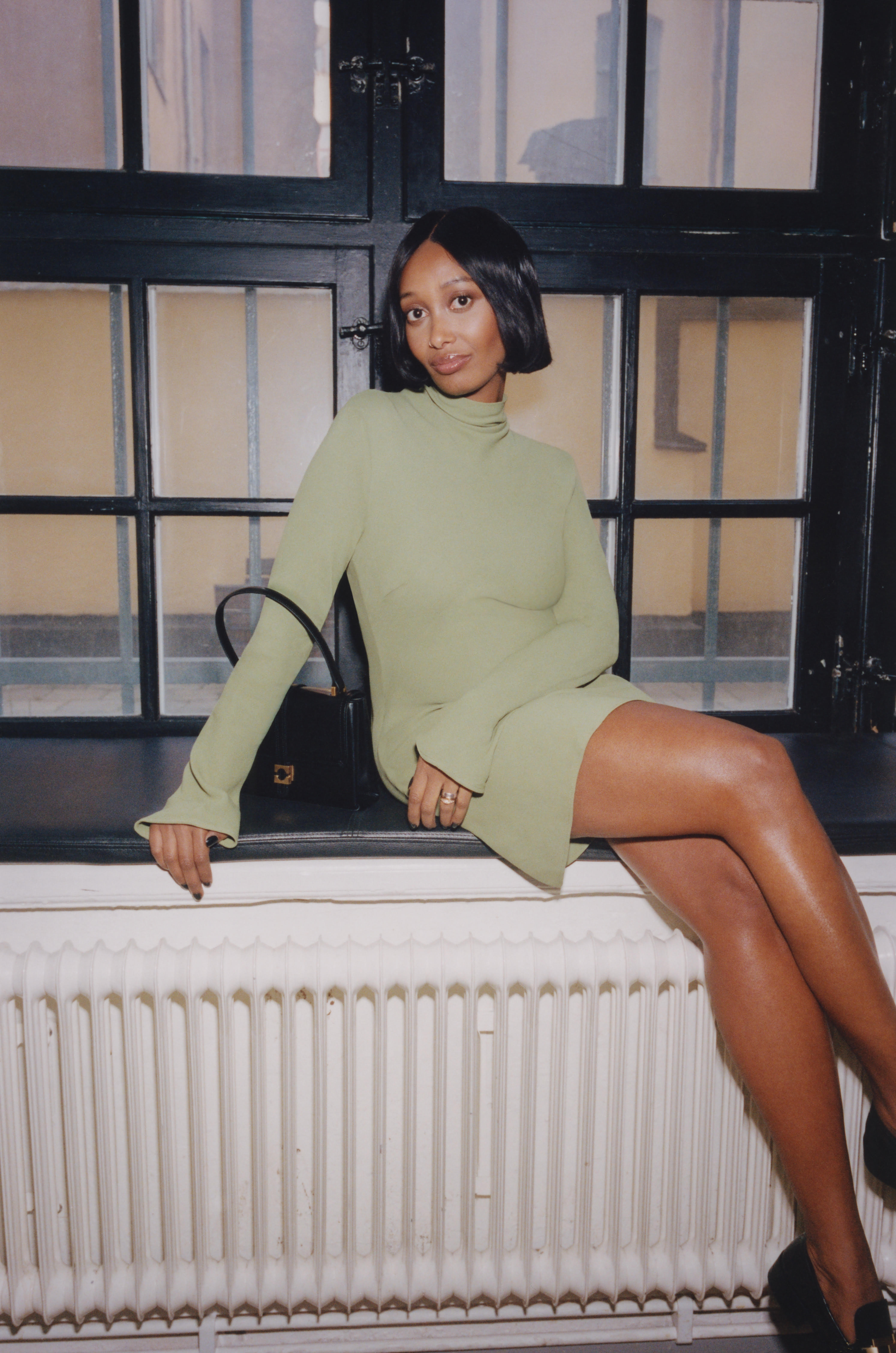
Ali founded her agency, Fiiri Agency, on a mission "represent the underrepresented."
Bringing a broader range of women to the runway by every measurable metric isn't just a business matter for Ali. It's personal. Over coffee between shows during Copenhagen Fashion Week during the fall 2025 season, Ali tells me about growing up as a Somalian refugee in Sweden and spending her early career in London in design. Despite being objectively gorgeous, with wide brown eyes and high cheekbones—a fact I couldn't help but notice while sitting right next to her—Ali couldn't quite get her footing on the runway for arbitrary and exclusionary reasons.
"I was always told I was too short," she says. "I was told I was too old—and I was around, like, 27." She didn't have to search far online to see other women with catwalk aspirations being rejected on the basis of their skin tone, size, or age. Or, they'd get cast and encounter an ill-equipped glam team to work with their hair and skin types.
The more Ali heard, the more she wondered, "Who made up these rules that you have to be 175 centimeters and you have to be this way or that way?" So she decided to do something about it.

During the recent fall 2025 season, Ali worked alongside brands including Marimekko and A.Roege Hove on inclusive casting.

Ali's agency signs women of ages, sizes, and backgrounds often overlooked by bigger firms.
Ali moved back to Sweden from London and founded Fiiri—Somali for "to see"—in 2019. By the 2021 season, she was signing clients and booking them for major shows across Copenhagen Fashion Week's circuit; then, and for the Fall of 2025, a majority of her clients were non-straight-size models.
In the early seasons and the present, Ali has thought of her role as a "people collector." She seeks out models who aren't like the commercial mold other runways might favor—and finds them plenty of work at a fashion week that prioritizes diversity. In Copenhagen, designers understand "anyone can wear [clothes on a runway], and I think that's slightly different from a designer who might be like, 'This is the look that we're going for,'" she explains. "They're much more open to seeing their designs on more broadened types of women—and people in general."

Here, a model signed by Ali who walked for the minimalist brand Skall Studio...

...as well as for the knitwear label TG Botanical.
Ali's guiding hand has connected models with Scandi mainstays like Marimekko, Skall Studio, and TG Botanical. She's been the bridge between models finding their first major jobs and designers broadening their definition of who can walk their runway. Looking back on her five years in business, "The feedback that I've gotten is, 'Since you started Fiiri, we have been seeing more diversity in the shows.'"
Representing underrepresented models has made Copenhagen Fashion Week better but hasn't made it perfect. "There are still some things when it comes to the hair and makeup industry that can improve," Ali says. "It can look nice on the outside, but it also really has to reflect diversity on the inside. I think there's still a lot of work to be done."

"Most of our models that are booked for fashion week are also size inclusive models," Ali says.

Several models signed with Fiiri agency walked in Marimekko's Fall 2025 show.
Still, relative to other markets, Copenhagen's runways are leagues ahead on the inclusion front. Ali and I met days before New York Fashion Week, one of several markets that, according to a recent Vogue Business study, is guilty of rolling back its size-inclusive casting in recent seasons. As of the Spring 2025 season, only 0.8 percent of looks shown across New York, London, Milan, and Paris were plus-size. I had to ask how Ali perceives the decline in runway diversity around the international fashion community—especially as Copenhagen proves it's possible to do the opposite.
She admitted it's a disappointment and a source of motivation. Ali had grown up dreaming of attending an American high school; shows like The Fresh Prince of Bel-Air were how she learned English. Growing up taught her that the reality of the United States didn't necessarily align with what she saw on TV, but she now feels she's in a place to help it get there. (At least, in fashion.) "America's still going to be a huge inspiration [for me], but I really hope we can give them inspiration now in some ways," she says.

Halie LeSavage is the senior fashion and beauty news editor at Marie Claire, where she assigns, edits, and writes stories for both sections. Halie is an expert on runway trends, celebrity style, emerging fashion and beauty brands, and shopping (naturally). In over seven years as a professional journalist, Halie’s reporting has ranged from fashion week coverage spanning the Copenhagen, New York, Milan, and Paris markets, to profiles on industry insiders like celebrity stylist Molly Dickson, to breaking news stories on noteworthy brand collaborations and beauty product launches. (She can personally confirm that Bella Hadid’s Ôrebella perfume is worth the hype.) She has also written dozens of research-backed shopping guides to finding the best tote bags, ballet flats, and more. Most of all, Halie loves to explore what style trends—like the rise of emotional support accessories or TikTok’s 75 Hard Style Challenge—can say about culture writ large. She also justifies almost any purchase by saying it’s “for work.”
Halie has previously held writer and editor roles at Glamour, Morning Brew, and Harper’s Bazaar. She has been cited as a fashion and beauty expert in The Cut, CNN Underscored, and Reuters, among other outlets, and appears in newsletters like Selleb and Self Checkout to provide shopping recommendations. In 2022, she earned the Hearst Spotlight Award for excellence and innovation in fashion journalism. She holds a Bachelor’s Degree in English from Harvard College. Outside of work, Halie is passionate about books, baking, and her miniature Bernedoodle, Dolly. For a behind-the-scenes look at her reporting, you can follow Halie on Instagram and TikTok.
-
 Tyla's Coachella Outfit Pairs Dolce & Gabbana With Pandora
Tyla's Coachella Outfit Pairs Dolce & Gabbana With PandoraThe singer wore a gold version of the crystal bra made famous by Aaliyah.
By Amy Mackelden Published
-
 How Kate Middleton Is Influencing George's Fashion Choices
How Kate Middleton Is Influencing George's Fashion ChoicesThe future king's smart blazer is straight out of Princess Kate's style playbook.
By Amy Mackelden Published
-
 King Charles "Couldn't" Meet Prince Harry During U.K. Visit
King Charles "Couldn't" Meet Prince Harry During U.K. Visit"It could actually bring down a court case."
By Amy Mackelden Published
-
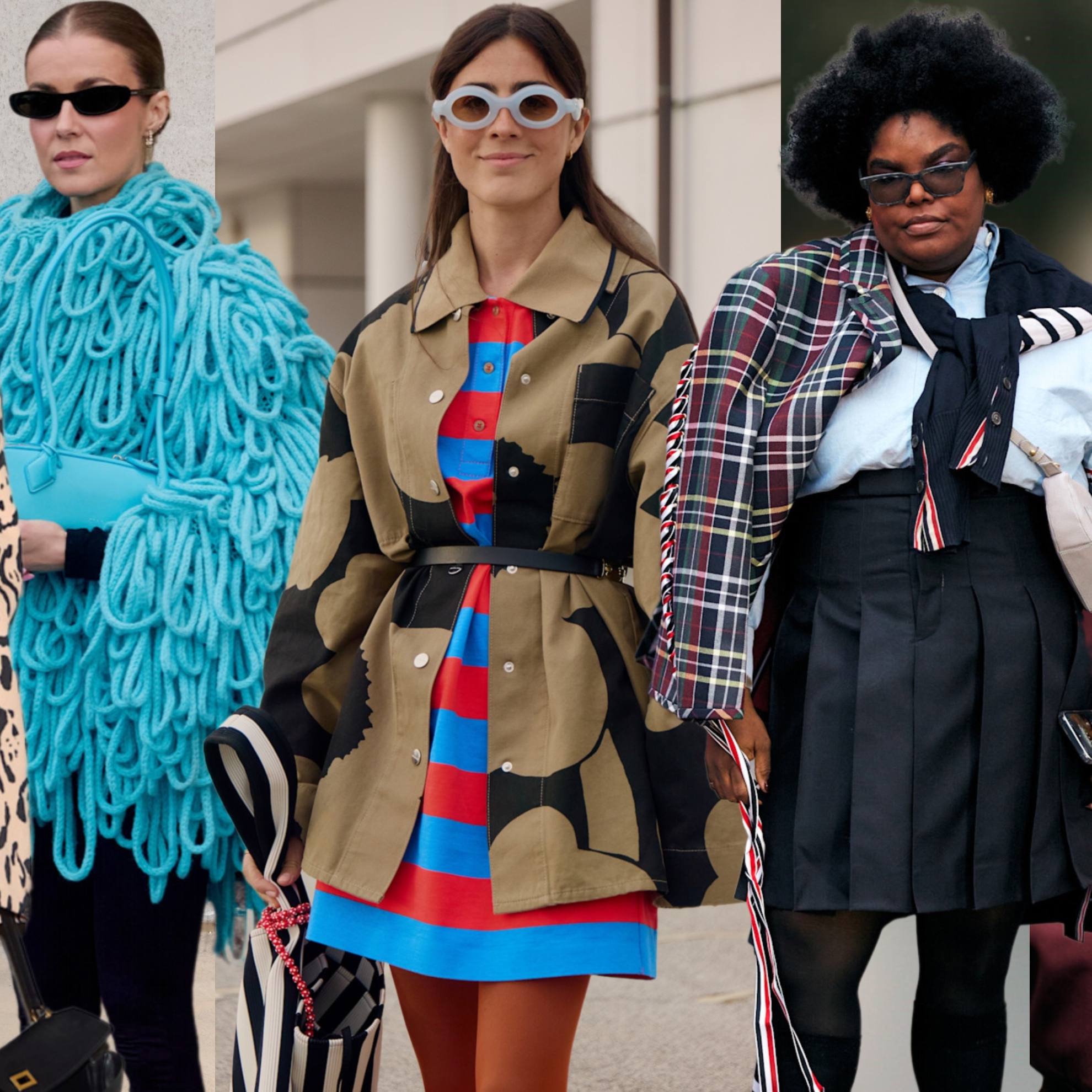 I Left My Favorite Sunglasses in Paris—But Now I Can Test These Street Style Trends
I Left My Favorite Sunglasses in Paris—But Now I Can Test These Street Style TrendsFrom retro cat-eye frames to high-tech transition lenses, there's so much inspiration for my next purchase.
By Sara Holzman Published
-
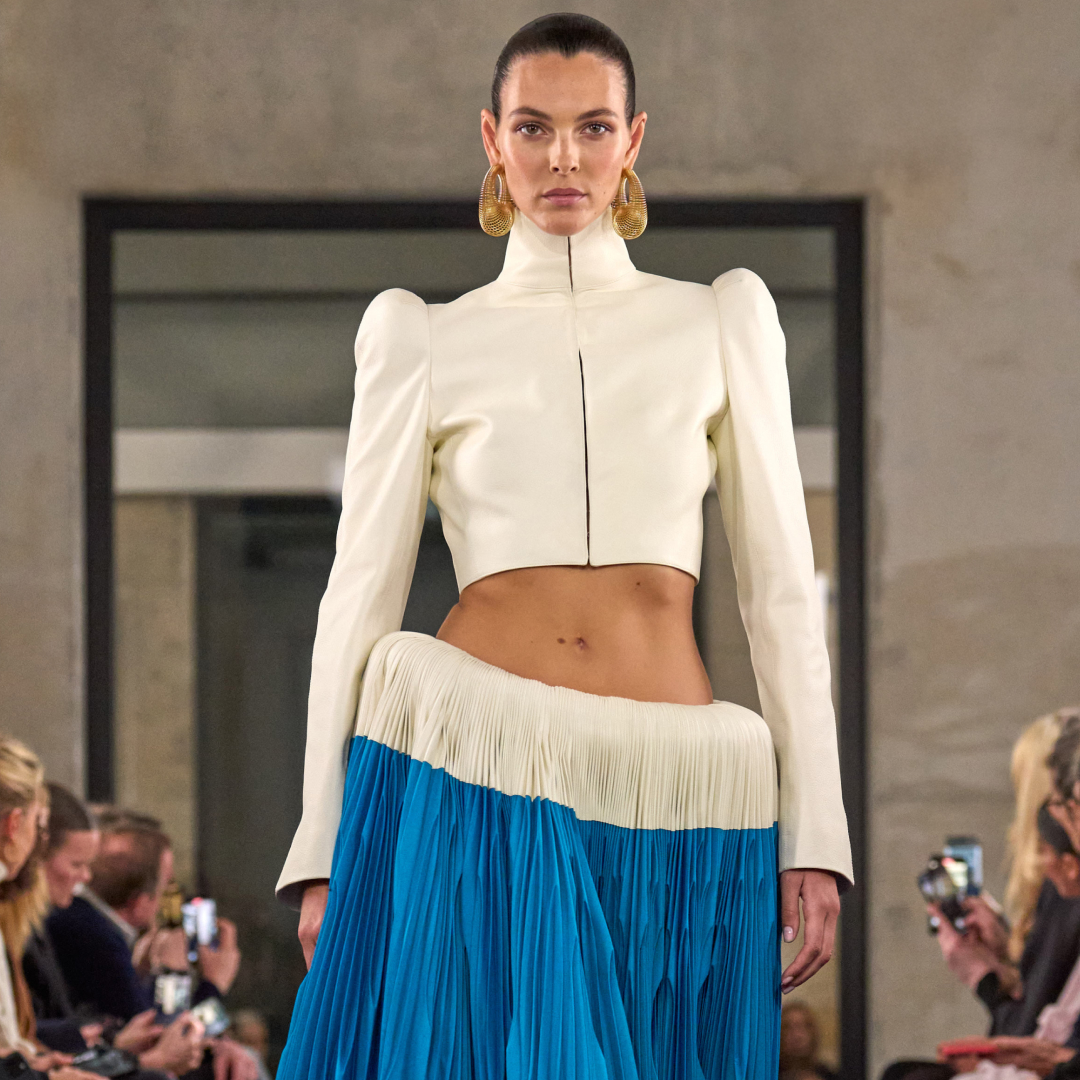 Fall 2025 Fashion Trends Embrace Curves—Runway Casting Is Another Story
Fall 2025 Fashion Trends Embrace Curves—Runway Casting Is Another StoryAccording to a new study, fashion week has never been less inclusive.
By Halie LeSavage Published
-
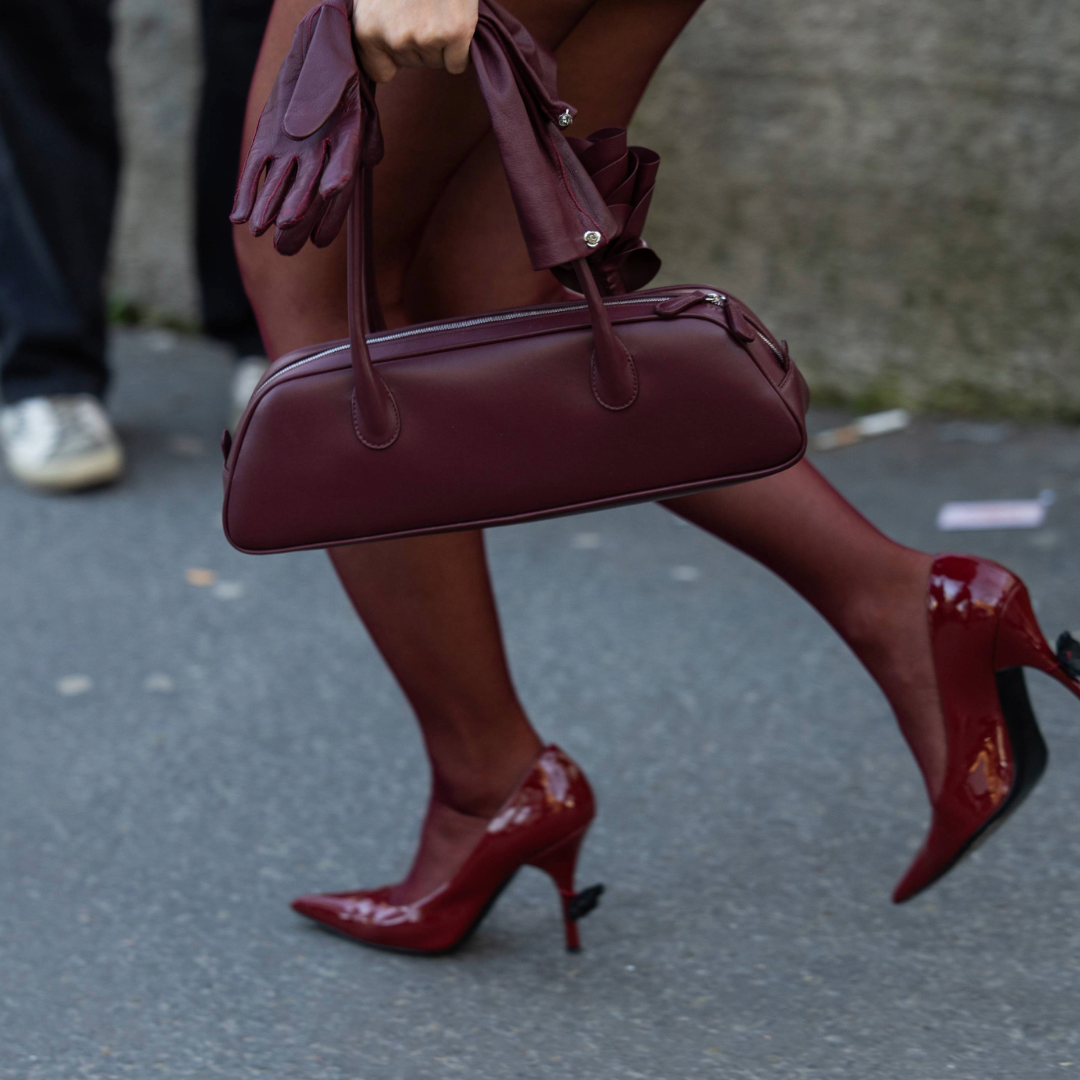 The French Girl Street Style Handbook Includes Matching Your Tights to Your Shoes
The French Girl Street Style Handbook Includes Matching Your Tights to Your ShoesThe look is so easy to replicate.
By Julia Marzovilla Published
-
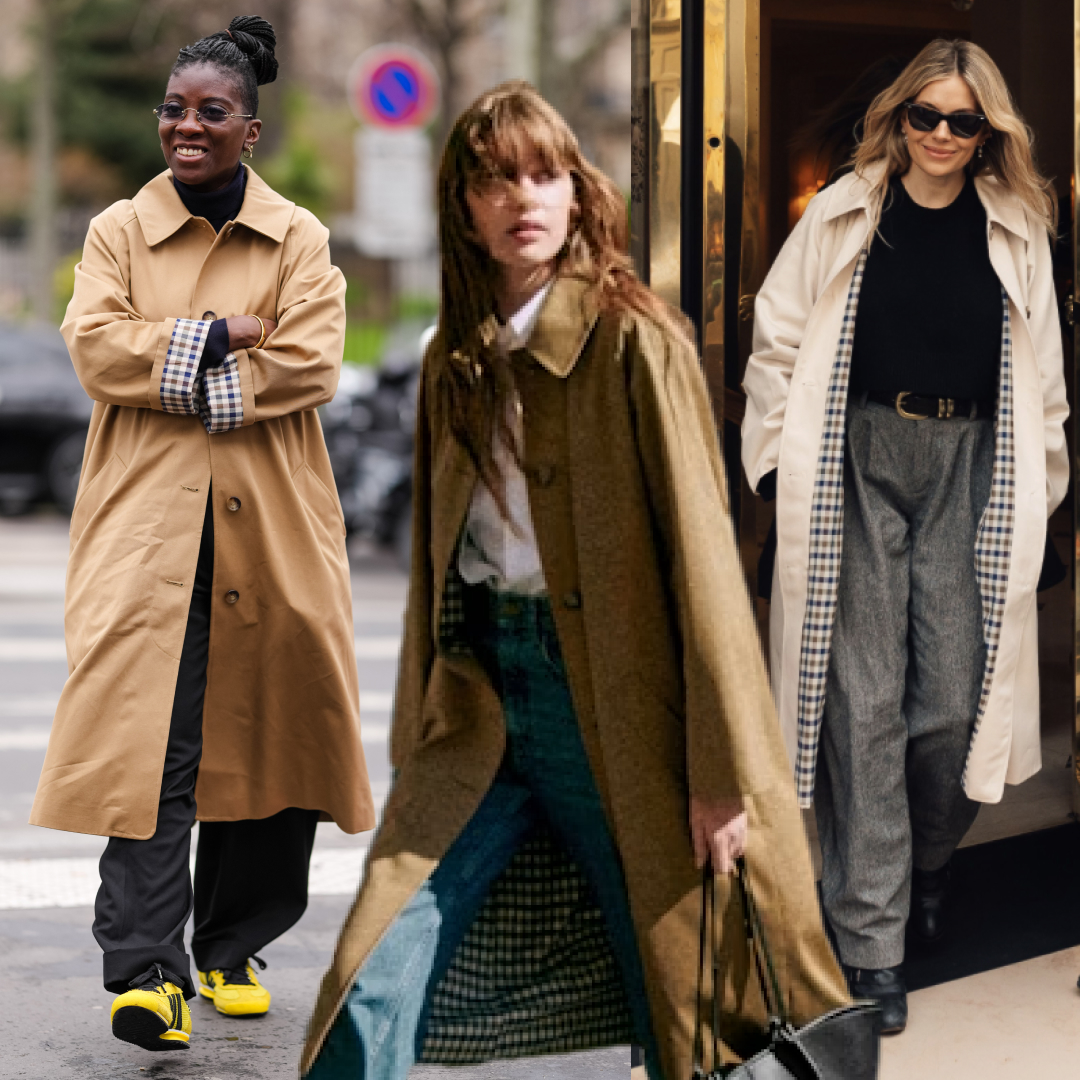 Why Sézane's Best Trench Coat Captivated Tastemakers From New York to Paris
Why Sézane's Best Trench Coat Captivated Tastemakers From New York to ParisSézane's Clyde coat is beloved from Paris to Los Angeles—and back.
By Halie LeSavage Last updated
-
 Bella Hadid Struts Saint Laurent's Fall 2025 Paris Fashion Week Show in a Blue Lace Naked Dress
Bella Hadid Struts Saint Laurent's Fall 2025 Paris Fashion Week Show in a Blue Lace Naked DressThe model shut down Saint Laurent in a blue lace naked dress.
By Halie LeSavage Published
-
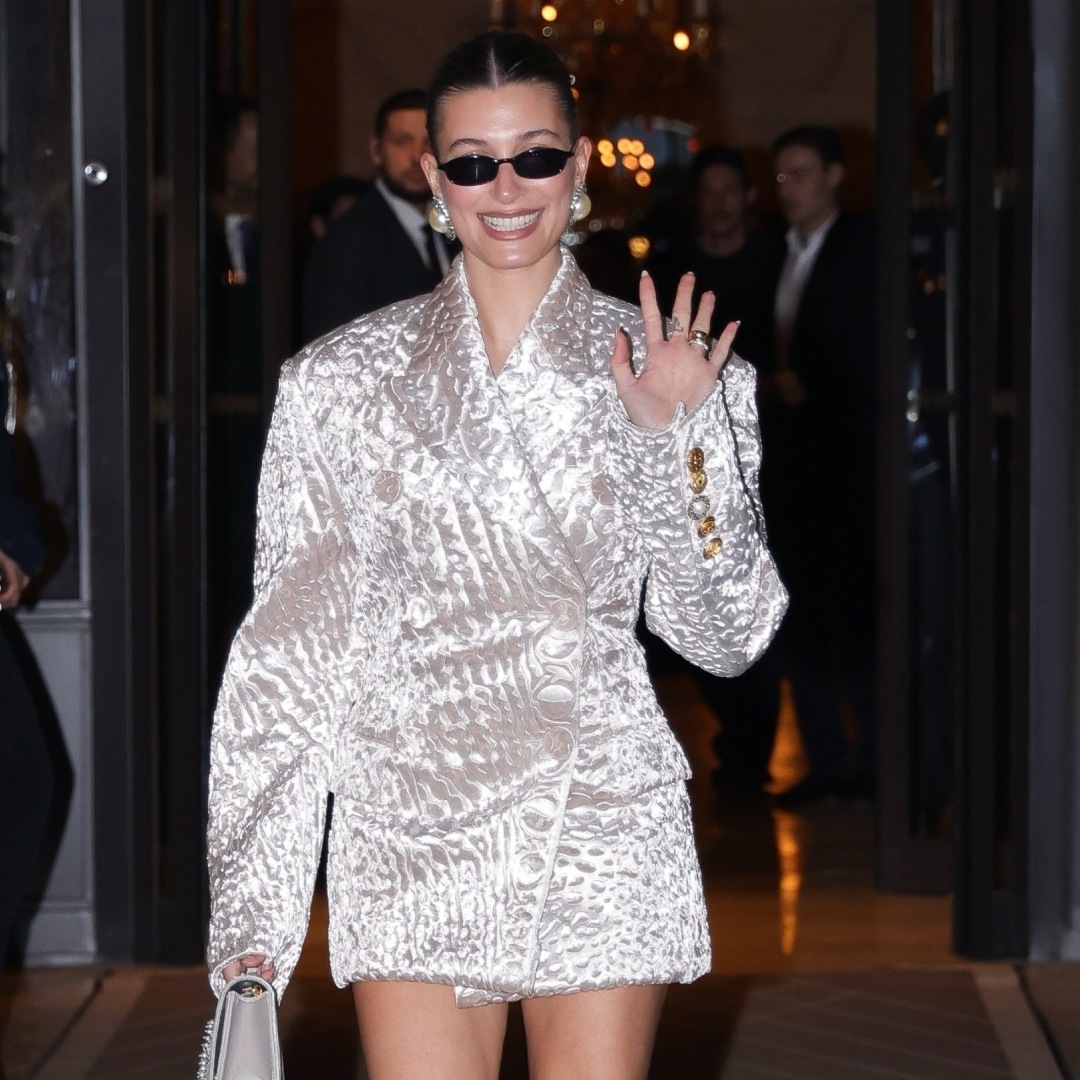 Hailey Bieber Models a Starlit Twist on the Velvet Flats Trend at Paris Fashion Week
Hailey Bieber Models a Starlit Twist on the Velvet Flats Trend at Paris Fashion WeekWith starlit shoes to match.
By Halie LeSavage Last updated
-
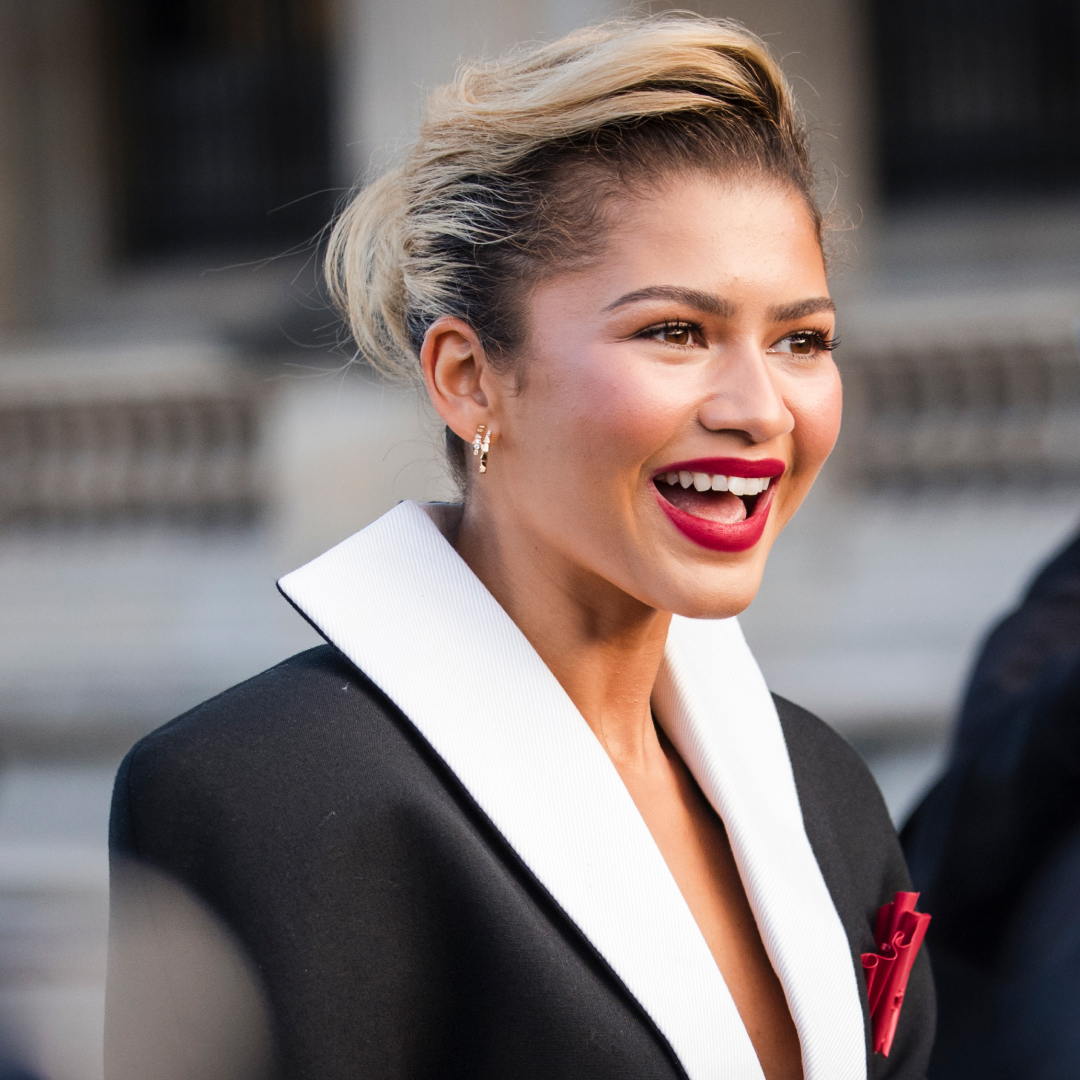 Zendaya, Noted Louis Vuitton Ambassador, Misses Its Paris Fashion Week Fall 2025 Front Row
Zendaya, Noted Louis Vuitton Ambassador, Misses Its Paris Fashion Week Fall 2025 Front RowThe star has her reasons for missing Paris Fashion Week.
By Halie LeSavage Last updated
-
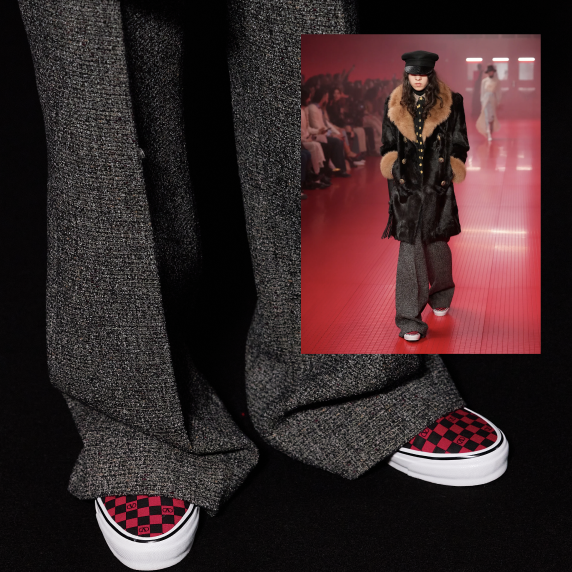 The Vans x Valentino Collaboration Transcends 2025 Sneaker Trends
The Vans x Valentino Collaboration Transcends 2025 Sneaker TrendsValentino wants us to go back to the roots of skater style.
By Halie LeSavage Published